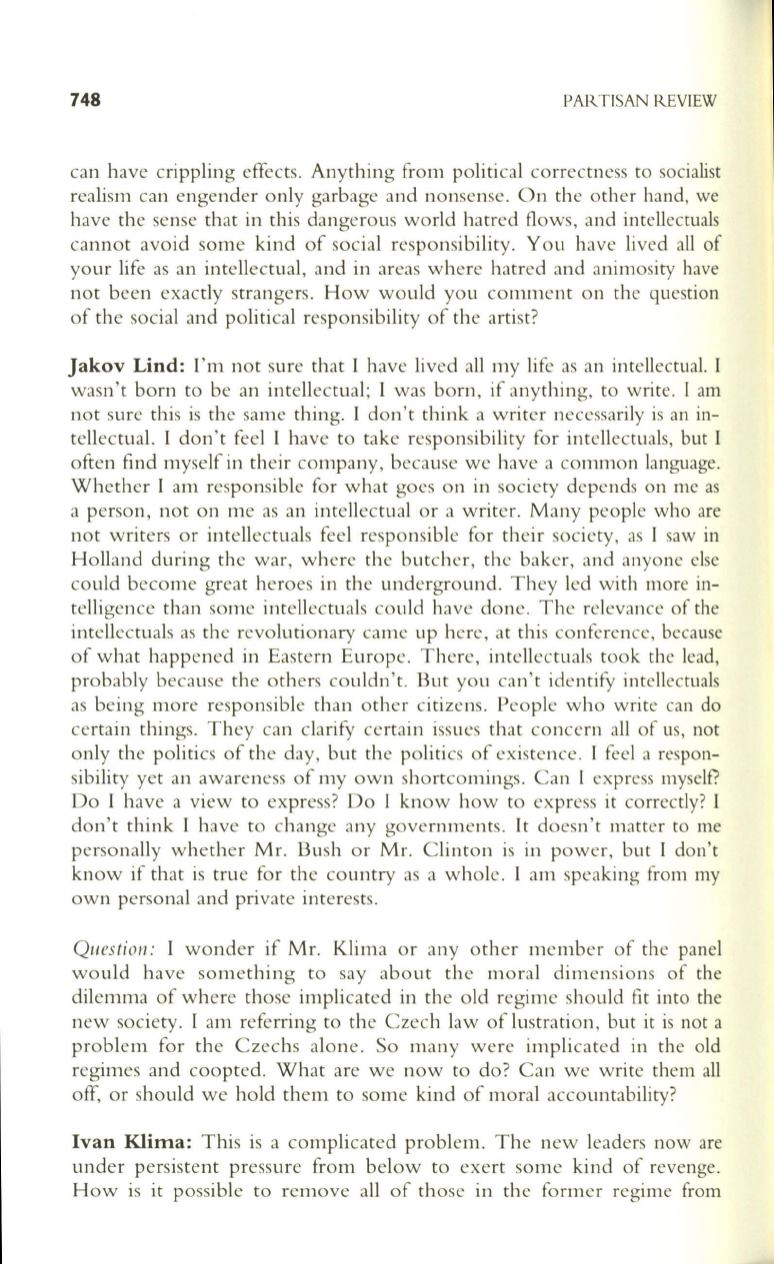
748
PARTISAN REVIEW
can have crippling effects. Anything from political correctness to socialist
realism can engender only garbage and nonsense. On the other hand, we
have the sense that in this dangerous world hatred flows, and intellectuals
cannot avoid some kind of social responsibility. You have lived all of
your life as an intellectual, and in areas where hatred and animosity have
not been exactly strangers. How would you comment on the question
of the social and political responsibility of the artist?
Jakov Lind:
I'm not sure that I have lived all my life as an intellectual. I
wasn't born to be an intellectual; I was born, if anything, to write. I am
not sure this is the same thing. I don't think a writer necessarily is an in–
tellectual. I don't feel I have to take responsibility for intellectuals, but I
often find myself in their company, because we have a common language.
Whether I am responsible for what goes on in society depends on me as
a person, not on me as an intellectual or a writer. Many people who are
not writers or intellectuals feel responsible for their society, as I saw in
Holland during the war, where the butcher, the baker, and anyone else
could become great heroes in the underground. They led with more in–
telligence than some intellectuals could have done. The relevance of the
intellectuals as the revolutionary came up here, at this conference , because
of what happened in Eastern Europe. There, intellectuals took the lead,
probably because the others couldn't. But you can't identify intellectuals
as being more responsible than other citizens. People who write can do
certain things. They can clarify certain issues that concern all of us, not
only the politics of the day, but the politics of existence. I feel a respon–
sibility yet an awareness of my own shortcomings. Can I express myself?
Do I have a view to express? Do I know how to express it correctly? I
don't think I have to change any governments. It doesn't matter to me
personally whether Mr. Bush or Mr. Clinton is in power, but I don't
know if that is true for the country as a whole. I am speaking from my
own personal and private interests.
Qllestion:
I wonder if Mr. Klima or any other member of the panel
would have something to say about the moral dimensions of the
dilemma of where those implicated in the old regime should fit into the
new society. I am referring to the Czech law of lustration, but it is not a
problem for the Czechs alone. So many were implicated in the old
regimes and coopted. What are we now to do? Can we write them all
off, or should we hold them to some kind of moral accountability?
Ivan Klima:
This is a complicated problem. The new leaders now are
under persistent pressure from below to exert some kind of revenge.
How is it possible to remove all of those in the former regime from


